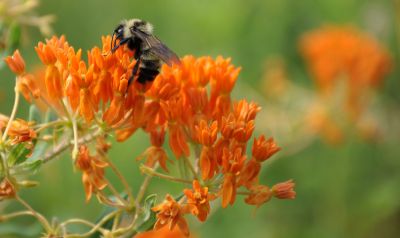Dry Lands and Examining Indepedence

A few days ago, people here and around the country gathered to celebrate America’s Independence Day. Around Merry Lea, the mood was not quite as mindlessly celebratory as I remember it being back home in Kansas. Part of this stemmed from the burn ban in Noble County, which nixed our ideas for a bonfire and fireworks. Another part no doubt came from the fact that most of us here are Mennonite or of Mennonite background, and so are a little bit hesitant about this whole patriotic nationalism thing. However, there was another part of our concern over the Fourth of July – the question of what exactly we are celebrating our independence from. As I explained to Cassilda, who celebrates the Indian independence day very differently, the Fourth of July is a chance to eat and drink yourself into a stupor over the course of an evening. That’s “independence.”
As discussions of energy independence, the American role as global policeman, the increasing inequality gap, and the role of the government in economic development become more and more shrill, it is easy to become confused as to what exactly “independence” means. Technically, there is no slavery in America (unless you have committed a crime, as per Amendment 13) – we are free to sell our skills to those who can provide us with unemployment, or even start our own farm. We have some of the cheapest energy on the planet, and we are free to use as much as we want. However, if my sarcasm isn’t blatant (as it drips from every word), much of our economic freedom is determined by larger economic forces and those with far more political influence than ourselves, and much of our energy comes at a cost to our soldiers and to those who live in areas where we flatten mountains and poison aquifers to access coal and natural gas. To reword Orwell, all Americans are free, but some are more free than others.
So here we are, learning about Agroecology. Amidst the lectures on soil and vegetables, the hours weeding in the hundred-degree heat, and the tours to various farms, we are learning more and more about what true independence looks like, and why it is not only undesirable, but also impossible. True independence means that one can provide entirely for one’s own needs – growing food, building shelter, and needing no other person to survive. How sad! There is independence that we should celebrate – from political regimes, from corporate power, from abusive relationships. But there is something we should celebrate even more – interdependence. A good farm is not independent, it is dependent on the consumers, farms and ecosystems around it. The Yoder Family Farm that we visited this week involves local children in their maple syrup-making process and includes all members of the Yoder family in decision-making. All the parts of a farm – compost, vegetables, animals, and farmers – are also interdependent. The Yoders have a diverse farm, with sugar maple trees, lands in the Conservation Reserve Program, asparagus beds, vegetable crops, and soybeans all working together to generate income. These are things we should be celebrating with fireworks – the interdependence of farms and communities, the diversity of strong, stable operations.
And we have been celebrating! Once a week, all of the students in the Summer Intensive, plus whoever happens to be around when we finish (David the intern, some students doing independent projects, our instructor) prepare a huge meal. This last week we celebrated on Sunday with Russian Mennonite verenika and gravy, and then again on Monday with a huge curry dinner to say goodbye to Mike who is beginning a summer internship in the Florida Keys. We celebrate the diversity of our cultures, cooking experiences, and tastes. We celebrate days of hard work in the hot sun. And most of all, we celebrate the interdependence of students, instructors, crops, the land, the weather, and the community both near and far that supports us in our time here. Happy Fourth of July!
– Posted by Jon Bergen, 2012 agroecology student




